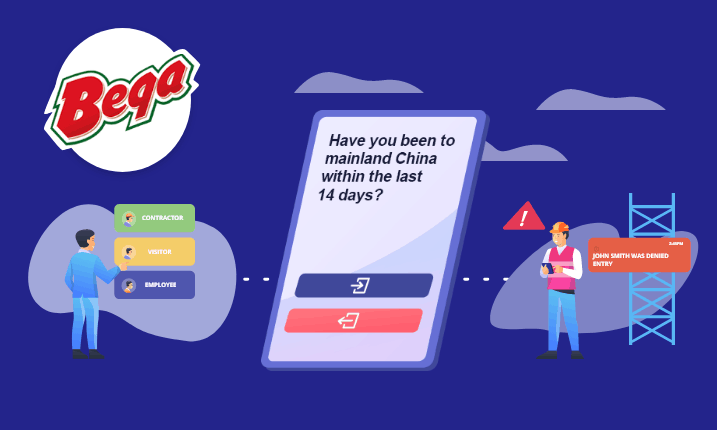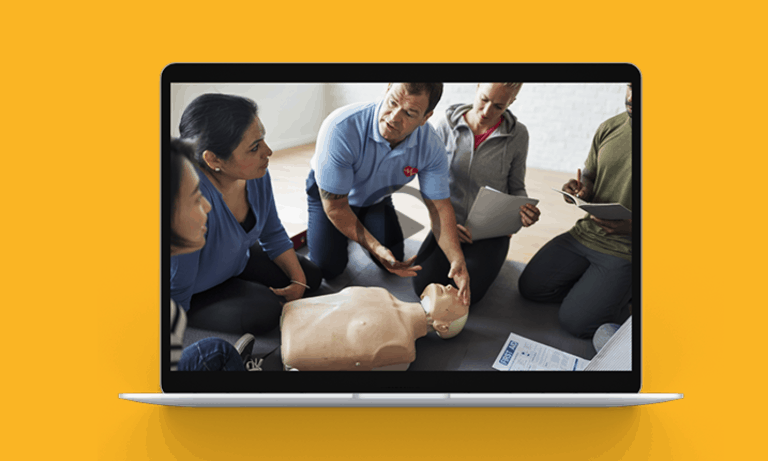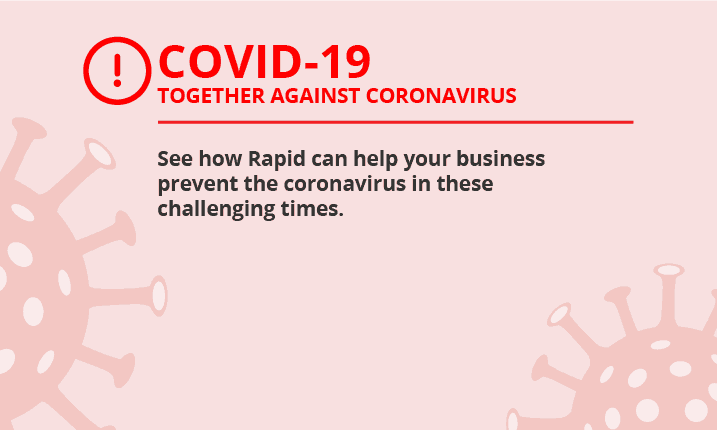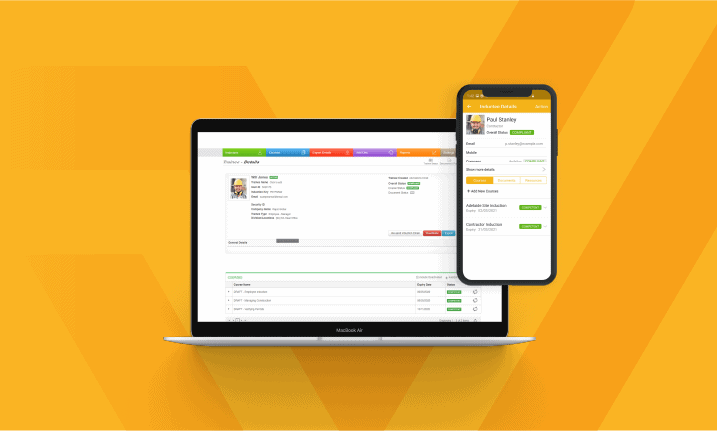

Now more than ever, infection control is undoubtedly one of the most important aspects in providing high-quality care for aged care residents, as well as your employees, contractors and visitors.
We look at 5 practical ways you can use Rapid’s software to implement infection controls at your aged care facility – these can also be followed by businesses in any industry. Our workplace management software is flexible and adaptive — meaning you can quickly respond to a viral outbreak, and put in-place preventative measures to minimise the risk of future outbreaks.
1. Staff and contractor inductions
Infection controls that support the Aged Care Quality Standards can be built into your staff and contractor inductions. Our signature software Rapid Induct allows you to do this quickly and easily using video, text, audio, and PDF lessons.
Your infection module might include:
- Hand hygiene — correct hand washing techniques and location of dedicated hand-wash stations.
- Respiratory hygiene — correct actions when coughing and sneezing.
- Personal protective equipment (PPE) — correct use of gloves, aprons, face masks and eyewear.
- Handling of medical devices — correct use and cleaning of medical instruments eg, catheters.
- Cleaning and managing spills — how to clean up blood, vomit, urine and other body fluids.
- Food handling — understanding food poisoning, preventing cross-contamination.
- Waste disposal — how to safely handle linen and contaminated waste.
- Disease awareness — understanding the signs and symptoms of gastroenteritis, and how infections are transmitted from person to person.
- Reporting — how to report suspected viral infections in residents.
One of the best things about Rapid Induct is the ability to track exactly who has completed their training — and when. The system will send reminders to managers and supervisors when staff and contractors are due to renew their infection control induction or take refresher training.
2. Managing your contractors

Having staff and contractors complete safety inductions is one step in tightening up your infection controls, but you should also be ensuring that contracting companies are properly qualified, insured, and trained.
Rapid Contractor Management allows you to set minimum standards for your contractors. To demonstrate just imagine you wanted to hire a carpenter to fix all the cabinet doors in your aged care facility. Using Rapid, each contractor would have their own master file containing:
- Insurances: upload a copy of public liability and worker’s compensation policies for the contracting company.
- Qualifications: upload a copy of carpentry licences and other nationally recognised qualifications for individual sub-contractors.
- Training: add each sub-contractor into the system and advise as each carpenter completes the Infection Control module in Rapid Induct.
- Risk Management: a copy of the contracting company’s Risk Management Plan that addresses specific infection and disease hazards usually present at aged care facilities.
The Rapid software will alert you when a contractor’s certifications, insurances, and training are due for renewal, plus sub-contractors who don’t meet minimum standards will be flagged for DENIED SITE ACCESS.

3. Visitor access and screening
Another best practice at aged care facilities is to screen visitors at the front entrance for infections and disease — including staff, contractors, relatives of residents, and business visitors. This can be done using Rapid Access.
We suggest the following Infection Controls:
- Facility staff — screening for recent fever, viral infections, and illness PLUS check on their uniform and footwear. Eg, deny entry to a staff member returning from sick leave without a doctor’s clearance.
- Maintenance contractors — screening for recent fever, viral infections, and illness PLUS checking they have completed the Infection Control induction module before starting a job. Eg, deny entry to an IT Technician who has not completed their safety induction.
- Relatives and friends of residents — screening for recent fever, viral infections, and illness. Eg, deny entry to a resident’s sister who has had a fever in the last 24 hours.
4. Staff training
Rapid Induct is not just for first-day safety inductions, this sophisticated software can be used for delivering any type of online training. Create an online training module and then assign it to different job roles — you could have:
- Detailed work sequences — eg, how to put on PPE before transporting a resident infected with gastro.
- Operational modules — eg, how to put away clean and sterile stock.
- Disease-specific modules — eg, listeria module to prevent food poisoning and contamination in food handling areas.
- Project modules — eg, dust control measures during construction and maintenance.
- Mandatory training — eg, food safety modules.
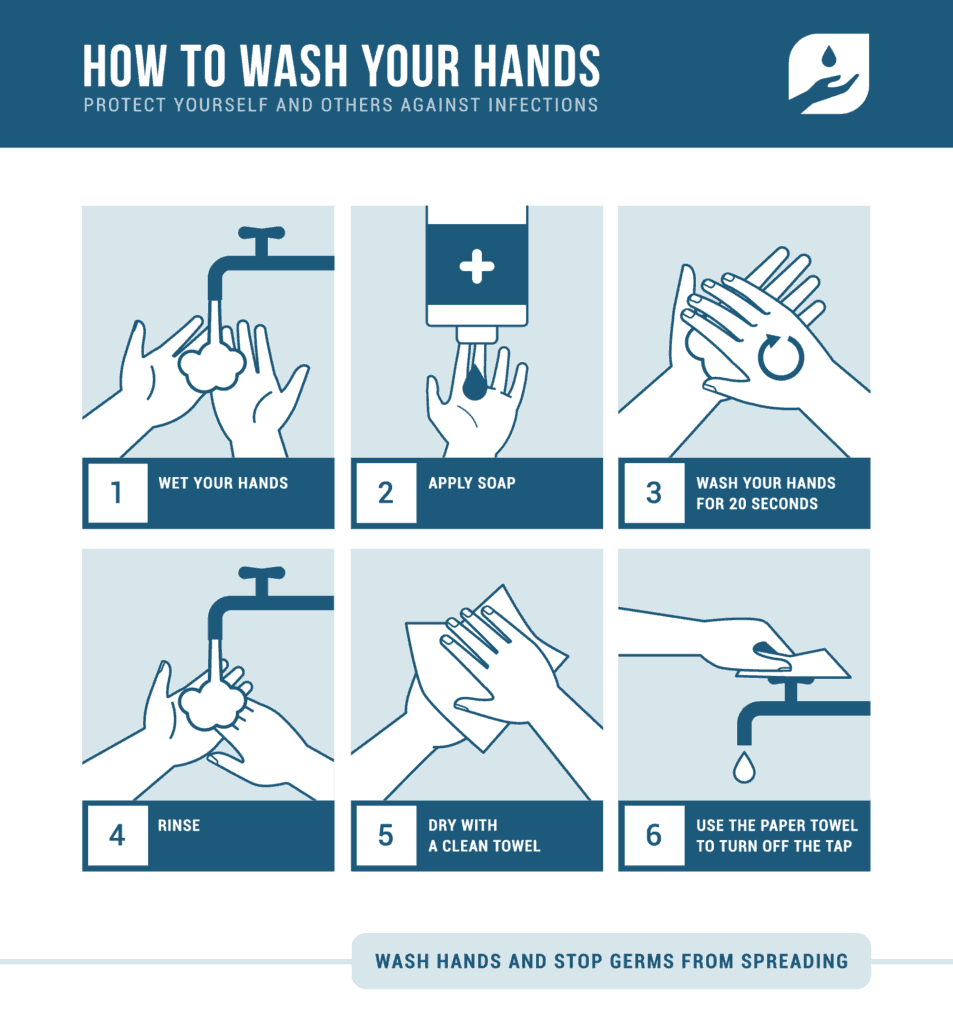
5. Safety auditing, monitoring and reviews
Finally, your infection controls should also contain procedures for safety auditing and operational reviews. This is essential under Section 37 and 38 of the Model WHS Regulations. Use Rapid Auditor to generate checklists, inspection reminders, and corrective action plans.
Examples include:
- Create a checklist for spill clean-up (and disposal procedures). Carry out spot audits on this task to ensure workers are following safety procedures.
- Randomly ask workers to demonstrate how they wash their hands.
- Inspect the kitchen and food stores and ensure that food has been properly refrigerated, segregated and covered.
Respond quickly to viral outbreaks
A critical part of aged care infection control is being able to respond to viral outbreaks — both onsite and in the wider community. Do you currently have the facilities to:
- Contain an outbreak of gastroenteritis at your aged care facility.
- Address the latest strain of the flu.
- Protect residents and staff from a public health emergency like the novel coronavirus (2019-nCoV) outbreak.
Depending on the nature of the illness and the threat to your people, you may need to alter your operating procedures as well as introduce new screening questions for site visitors. This is where Rapid Safety Systems really stands out from the crowd.
Our fantastic software allows you to build multi-tiered questioning into your visitor screening systems — and these can be updated at any time then introduced into the system immediately. Plus, there are no limits to the number of training modules, safety inductions, and contractor configurations you set in your own system.
If you’re an aged care professional and wanting to adopt a whole-site approach to your infection controls, why not get in touch today and request a free demo? Or if you already use Rapid, talk to our sales team to add any of our products to your package.




